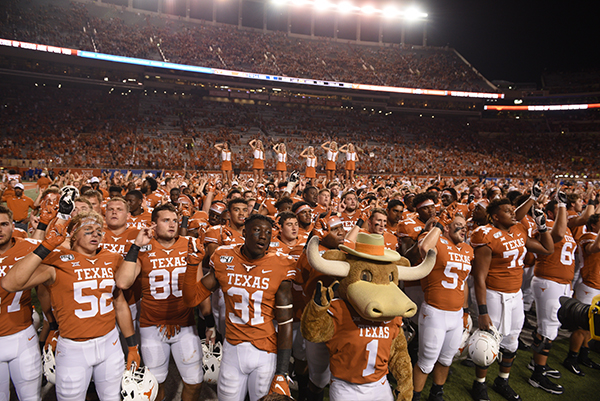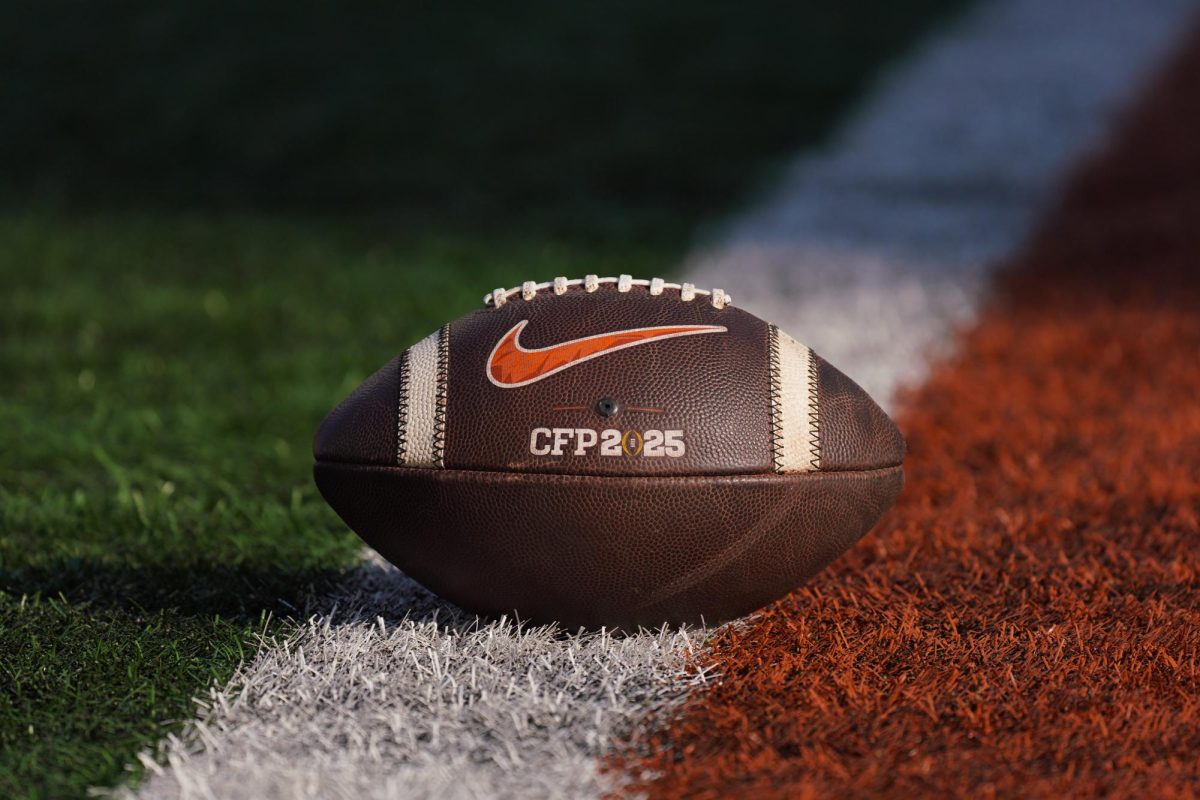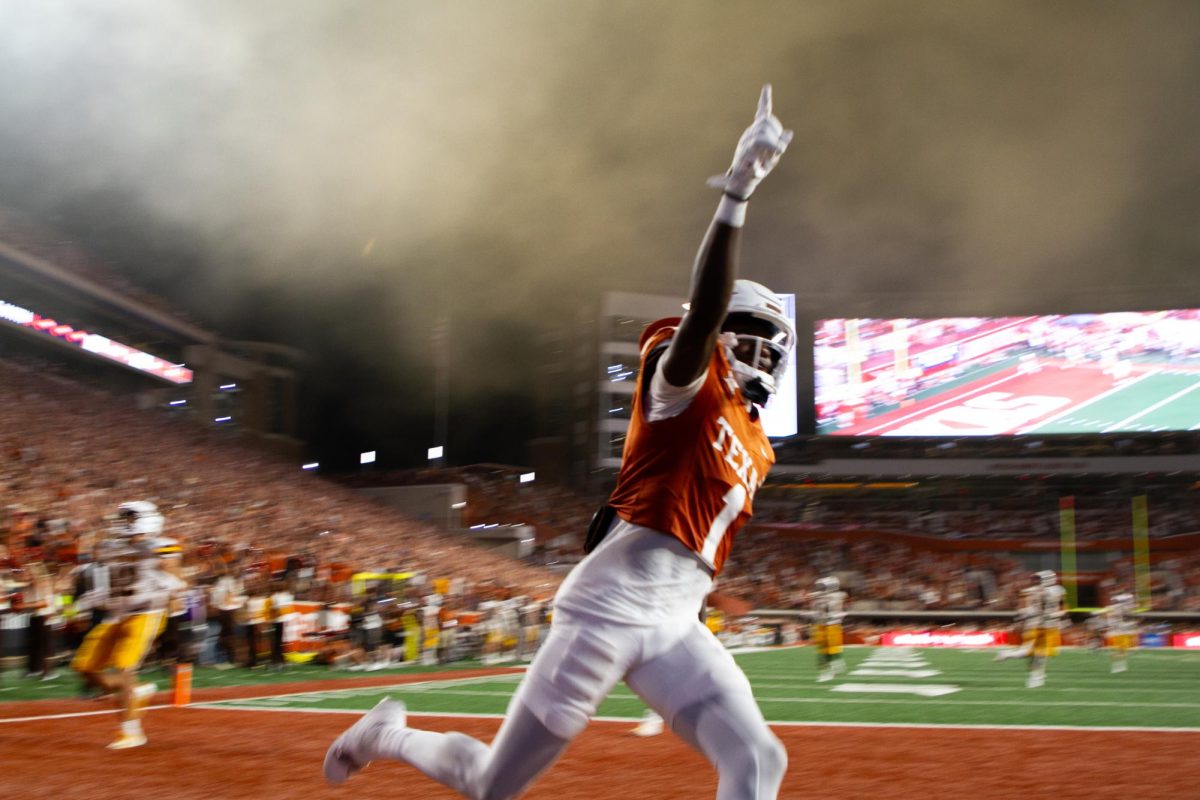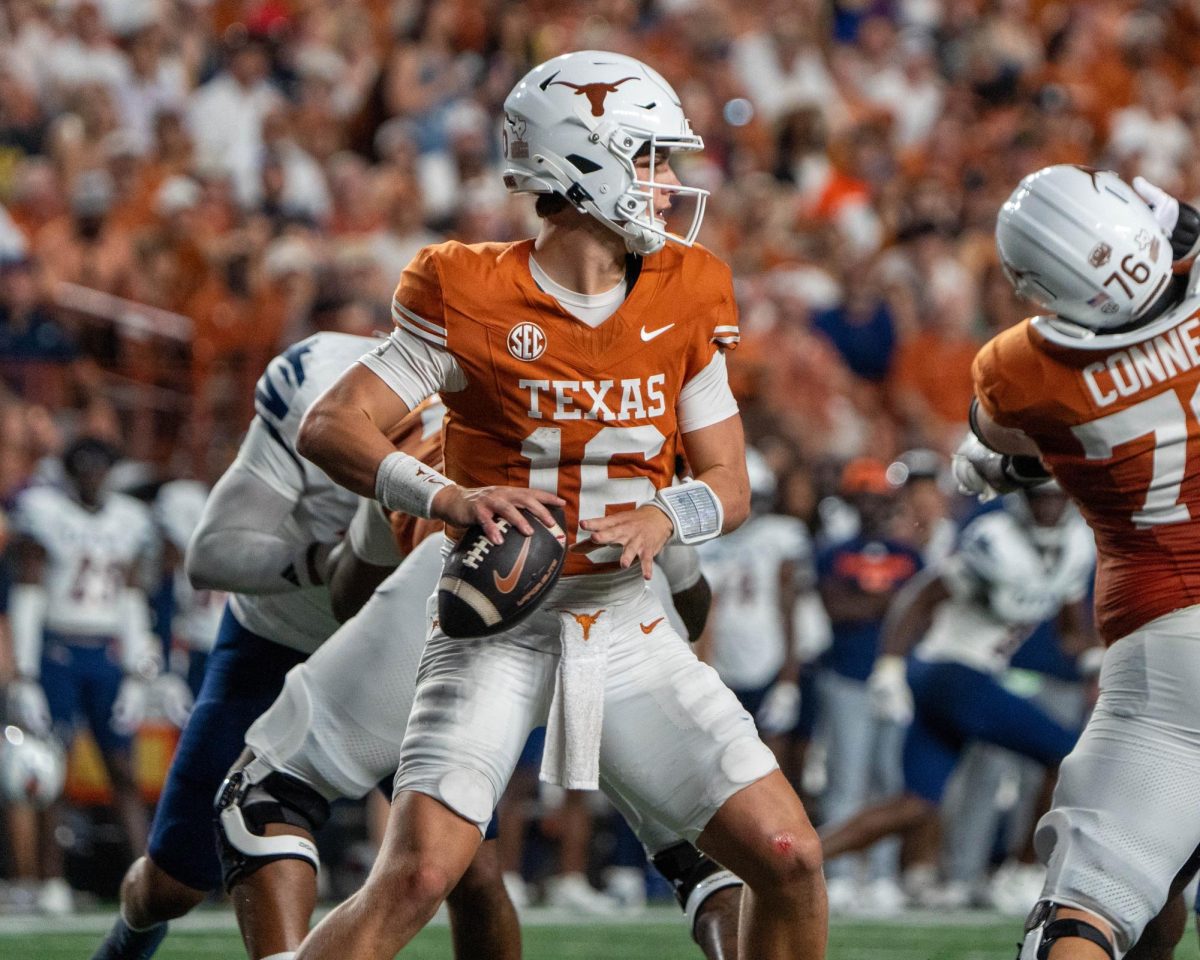After a summer characterized by countless instances of racial injustices being brought to light, junior linebacker DeMarvion Overshown communicated his pain in three words: “Am I next?”
“I’m a big black man and police will easily be intimidated by my size. Am I next?”
Overshown tweeted in a statement titled “Am I Next” on Aug. 27. “I have younger brothers and cousins that look up to me and I need to be here for them but sometimes I stay up late thinking am I next?”
Overshown’s emotions are shared by other Texas football players who say they are tired of oppression directed at the Black community. The shooting of Jacob Blake, a Black man and father, by police in Kenosha, Wisconsin on Aug. 23 spurred a new wave of protests against anti-Black police violence.
However, unlike the protests in June demanding justice for George Floyd, Ahmaud Arbery, Breonna Taylor and other Black individuals killed by law enforcement, the most recent ones have transcended city streets, taking significant hold in the sports arena.
It started with the NBA’s Milwaukee Bucks, who boycotted their playoff game on Aug. 26 to protest Blake’s treatment by police. Other teams in the NBA and across other sports leagues also sidelined themselves, including the Texas football team which did not practice last Thursday or Friday.
“We chose to sit out practice to dialogue about how to better our society,” Josh Thompson, redshirt junior defensive back, tweeted in a statement Saturday. “We, as players, realized that addressing racial injustice is more significant than playing the sport we love.”
In the statement later reposted by several other Texas players, Thompson said the team hopes to take several steps to create change within society, including working with churches so they can cover issues of social justice in their messages and setting up monthly meetings with law enforcement.
The continued movement has angered sports fans who take to comment sections to express their distaste for athlete activism. Football head coach Tom Herman said Sunday in a Zoom teleconference that he would caution those who form strong opinions on issues that don’t affect them in the same ways as others.
“(The players) are human beings that are affected by this,” Herman said. “And, you know, for any other human being to tell another human being how to feel, I think, without ever walking a mile in their shoes, I just don’t think is right.”
Herman said he’s happy to see the athletes empowered, adding that they shouldn’t be silenced. At UT especially, he believes players can use their platforms to be both activists and athletes.
“You can devote your time, effort and energy to playing this game and preparing to play this game at the level that we all expect,” Herman said. “There’s still enough time in the day to put time, effort and energy in yourself to go affect meaningful change in your society.”
Fans should have the decency to listen, Herman said, because the players have earned the right to be heard.
“I’m scared. We are scared. I’m tired. We are tired. I’m fed up. We are fed up,” Overshown tweeted. “We just want equality, fairness and justice. But yet I’m sitting here wondering … AM I NEXT?”





















